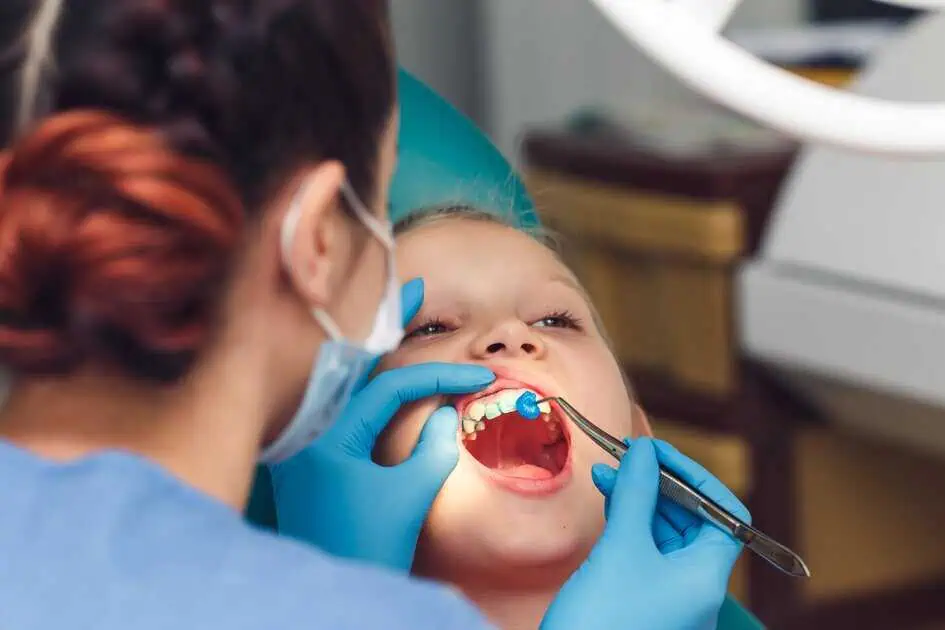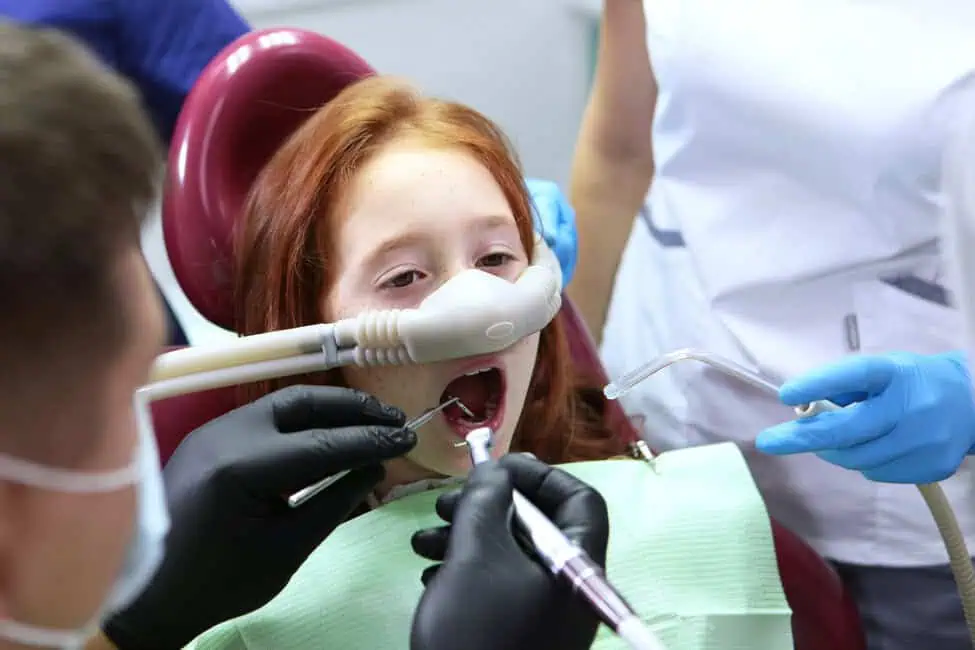As parents, our journey is nurturing, guiding, and safeguarding our children’s well-being. Amidst the flurry of parenting tasks, one crucial facet that often escapes our attention is dental care. The seemingly insignificant tiny teeth are pivotal in our children’s development, self-esteem, and overall health. In this comprehensive guide, we’ll embark on a voyage through kids’ dentistry, equipping you with the knowledge and insights needed to ensure your child’s dental health flourishes, paving the way for a radiant smile and a confident future.
Why Kids’ Dental Care Matters
Early Habits for Lifelong Benefits: Introducing dental care early in a child’s life lays the groundwork for lifelong oral hygiene habits. The sooner children become accustomed to brushing, flossing, and routine dental visits, the better they will maintain these practices into adulthood. These habits act as guardians, protecting against a myriad of dental issues.
Impact on Overall Health: Dental health is a gateway to overall well-being. The mouth is a window that can reveal early signs of systemic diseases. Poor oral hygiene can lead to gum disease and infections, hindering speech development and adequate nutrition intake. Caring for those tiny teeth goes beyond aesthetics—a commitment to holistic health.
Boosting Confidence and Self-Esteem: A healthy smile isn’t just a physical attribute; it’s a catalyst for confidence. Children with well-maintained teeth are likelier to have higher self-esteem and a positive self-image. A beaming smile sets the stage for successful social interactions, fostering a brighter and more assured future.
The First Steps: Early Childhood Dental Care
First Dental Visit: The American Dental Association recommends scheduling a child’s inaugural dental visit within six months after the first tooth’s emergence or by their first birthday. This early encounter establishes a rapport with the dentist, helping to dispel dental anxieties. Furthermore, it ensures that your child’s dental development is on track and that potential issues are detected and addressed promptly.
Teething Troubles: The arrival of those first teeth can be thrilling and challenging for parents and infants. Teething can cause discomfort, but appropriate teething toys and a gentle gum-cleaning regimen with a soft cloth can help maintain oral hygiene during this sensitive period.
Choosing the Right Toothbrush and Toothpaste: The tools we employ in our children’s oral care are pivotal. Opt for a soft-bristled toothbrush appropriate for your child’s age. A smear of fluoride toothpaste is recommended for those under two, while a pea-sized amount is sufficient to promote dental health for those under two.
Developing Healthy Dental Habits
Lead by Example: Parents are the foremost role models for their children. Regular brushing and flossing with your child emphasizes oral hygiene’s importance. This shared routine fosters a sense of togetherness while teaching vital habits.
Creating a Routine: Consistency transforms routines into habits. Set specific times for brushing and flossing each day. This structured approach instills discipline and reinforces the significance of oral care.
Making it Fun: Elevate dental care from a chore to an enjoyable endeavor. The market is teeming with vibrantly colored toothbrushes, toothpaste flavors, and even interactive apps that transform brushing into a delightful activity, making it a part of your child’s daily ritual.
Nutrition and Its Impact on Teeth
Limit Sugary Snacks and Beverages: Excessive sugar consumption is a notorious culprit in tooth decay. You create a dietary environment that nurtures oral and overall health by reducing sugary treats and encouraging healthier alternatives like fruits, vegetables, and dairy products.
Hydration and Oral Health: Water, the elixir of life, also plays a pivotal role in oral health. Drinking water assists in dislodging food particles, reducing the risk of cavities, and maintaining a moist environment in the mouth, which is essential for gum health.
Calcium-Rich Foods: Strong teeth are fortified by calcium. Integrate dairy products, leafy greens, and fortified foods into your child’s diet to bolster their dental development and overall bone health.
Preventing Common Dental Issues
Cavities: The battle against cavities begins with vigilance. Limiting sugary foods and beverages, maintaining regular dental check-ups, and contemplating dental sealants can fortify your child’s teeth against the relentless assault of tooth decay.
Thumb-Sucking and Pacifier Use: Infants often embrace These comforting habits, but extended reliance can result in dental maladies. Encourage your child to relinquish these habits as they mature to prevent potential dental complications.
Malocclusion and Orthodontic Care: The alignment of teeth plays a pivotal role in dental health. Regularly monitor your child’s teeth for any signs of misalignment. Early detection of orthodontic issues can lead to more effective treatment outcomes.
The Role of the Dentist: Regular Check-ups and More
Choosing the Right Dentist: Seek a dentist with specialized expertise in pediatric care. A dentist experienced in treating children can provide a comfortable and reassuring environment, making dental visits a positive experience.
Regular Check-ups: Routine dental visits, ideally every six months, serve as checkpoints in your child’s oral health journey. During these visits, professionals monitor dental development, perform professional cleaning, and detect potential issues before they escalate.
Dental X-rays: Modern dental technology has transformed the X-ray experience. These images, which entail minimal radiation exposure, can unveil hidden dental issues like cavities between teeth that might not be apparent during a visual examination.
Handling Dental Anxiety
Open Communication: Before a dental visit, engage your child in a conversation about what to expect. Tailor your explanation to their age and understanding, assuaging fears and uncertainties.
Distraction Techniques: Pack a beloved toy or captivating book to engage your child’s attention during the dental visit. Distraction can be a potent tool in managing dental anxiety.
Positive Reinforcement: Acknowledge and praise your child’s bravery after the dental visit. Implement a small reward system to reinforce their positive experience further.
Conclusion
The voyage of kids’ dentistry embarks upon a collaborative expedition involving parents, children, and dental professionals. By fostering robust oral hygiene practices, championing a balanced diet, and cultivating positive attitudes toward dental care, parents wield the power to shape a future adorned with radiant smiles. Within those seemingly insignificant tiny teeth reside monumental responsibilities that, through your guidance, today, can lay the foundation for your child’s dental health and overall well-being for years to come.
As you embark on this journey, consider partnering with Solomon Kids Dentistry, a beacon of excellence in pediatric dental care. Their specialized expertise and child-friendly approach ensure each dental visit is comfortable but also educational and enjoyable for your child. Let Solomon Kids Dentistry be your companion in nurturing those tiny teeth, empowering your child with the tools they need for a lifetime of confident smiles and optimal oral health. Your child’s dental adventure starts here!





